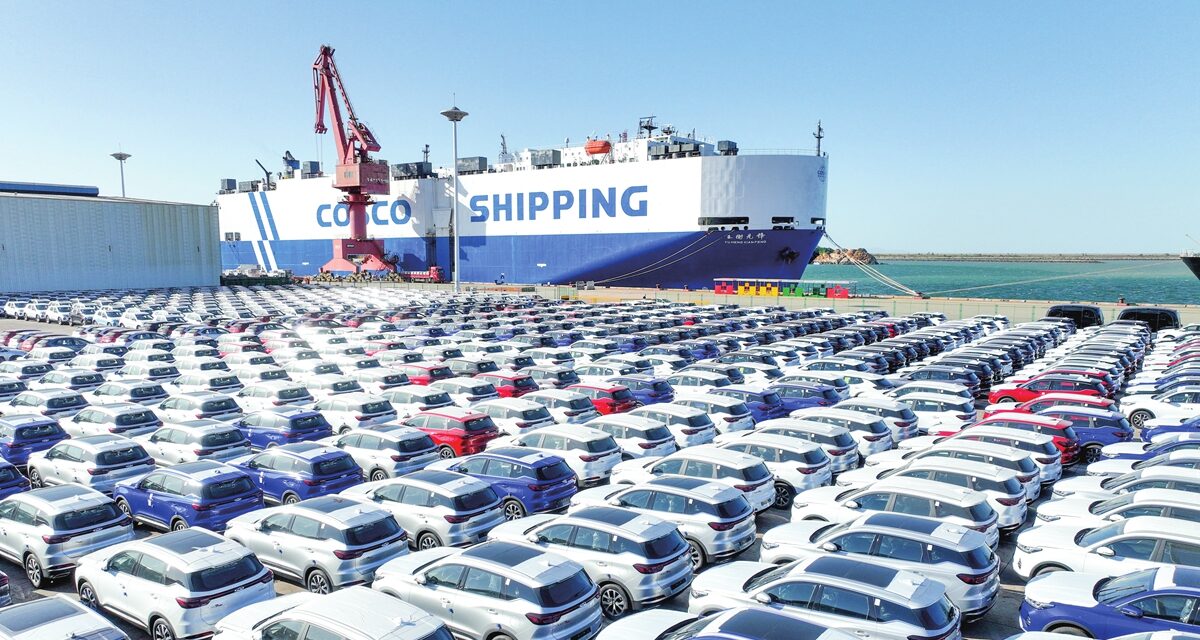The European Union (EU) has taken a significant step in its effort to protect the local car industry by imposing heavy tariffs on electric vehicle (EV) imports from China. This move, backed by a majority of EU member states, will see tariffs rise from the current 10% to as much as 45% over the next five years. The decision comes as EU leaders express growing concern over what they view as unfair competition, claiming Chinese manufacturers benefit from significant state subsidies, which give them an advantage in the European market.
Protecting the European Car Industry
The new tariffs are intended to shield the European automotive industry from being undercut by low-priced Chinese EVs. Over the past two decades, China’s domestic car industry has rapidly expanded, with major brands like BYD and Geely now making inroads into international markets. This aggressive global expansion has raised concerns in Europe that local carmakers will struggle to compete, particularly as Chinese vehicles are significantly cheaper.
The EU’s decision was based on an investigation into the amount of Chinese state aid provided to manufacturers. Duties will now vary across brands, with leading companies like SAIC, BYD, and Geely being subjected to the highest tariffs.
A Divided EU Vote
Despite the majority support for the tariffs, the vote revealed deep divisions within the EU. Germany, which relies heavily on exports to China for its own car industry, opposed the new taxes, with major German automakers such as Volkswagen voicing concerns that the tariffs are “the wrong approach” and could backfire. Other member states, including France, Italy, the Netherlands, and Poland, were in favor of the tariffs, viewing them as necessary to protect their own industries.
Germany’s top industry body, BDI, has called for continued trade talks between the EU and China to avoid an escalation in tensions that could lead to a full-blown trade war.
China’s Response and Trade War Fears
China has condemned the tariffs, describing them as “unfair” and “unreasonable.” The country’s Commerce Ministry has expressed hope that a resolution could still be found through negotiations, but the decision has sparked fears of retaliation. European industries, particularly those outside the automotive sector, are worried that China might respond with tariffs of its own. For example, the French cognac industry, which relies on exports to China, has voiced concerns that it could become a casualty of the escalating trade dispute.
Impact on Electric Vehicle Prices and Availability
While the new tariffs are designed to protect European carmakers, there are concerns that they could have unintended consequences for consumers. The rise in tariffs could increase the price of electric vehicles for European buyers, potentially slowing the adoption of EVs at a time when the EU is pushing for greener transportation options.
In the UK, where demand for electric vehicles has recently hit record highs, industry leaders have warned that more needs to be done to make EVs affordable and accessible. The Society of Motor Manufacturers and Traders (SMMT) has raised concerns that the market is not growing quickly enough to meet government targets, particularly as the average price of an electric vehicle remains high at around £48,000.
Manufacturers, including BMW, Ford, and Nissan, have urged UK leaders to provide better incentives for EV buyers and to improve the country’s charging infrastructure to boost consumer confidence. With looming deadlines to phase out petrol and diesel vehicles, carmakers face growing pressure to meet zero-emission sales targets or face substantial fines.
Looking Ahead
As tensions between the EU and China continue to simmer, it remains to be seen whether negotiations will help ease the strain or whether the tariffs will lead to a wider trade war. In the meantime, European consumers may see prices for electric vehicles climb, while local manufacturers hope that the protectionist measures will give them the breathing space needed to remain competitive in an increasingly global market.













